Apr 2, 2024 12:59 PM
Saxophonist, Sonic Explorer Casey Benjamin Dies at 45
Casey Benjamin, the alto saxophonist, vocalist, keyboardist and producer who stamped his distinctive sounds on the…
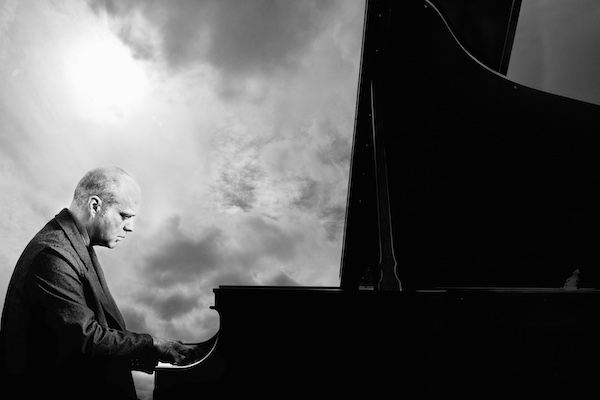
On a series of recent and upcoming projects, keyboardist John Medeski explores musical relationships that, in some cases, stretch back decades.
(Photo: Michael Bloom)When the progressive trio Medeski Martin & Wood first got together, they all agreed to keep the ensemble going only as long as it felt good. Keyboardist John Medeski thought that maybe the group would last five years. Tops.
That was almost 30 years ago.
The electric chemistry within the group is still undeniable. But their last release was in 2018 and, as has always been the case, each member is working on various projects. Medeski, for his part, has continued to explore the trio sound, though outside the parameters of a traditional rhythm section. Several recent releases—each with a different trio—demonstrate how effortlessly the keyboardist adapts in these expansive musical environments.
“The musicians [on these projects], they all have their own personalities, their own style,” Medeski said from his home two hours north of New York City, where he was sequestered with his family. “A combination of musicians comes together and becomes an entity—that’s how a lot of these trios have come about. Organically, from a situation where you get together to make music and then go, ‘We should record this.’”
Medeski describes the musical evolution of MMW in much the same way. Originally an acoustic piano trio, the group developed its deep-grooved, avant-garde sound as a matter of expediency: There weren’t any decent pianos on the road. “So, I started using Hammond organ,” Medeski explained. “I pulled it out for Medeski Martin & Wood, then started adding keyboards, mainly to have other sounds and textures.”
Drummer Jeff Cosgrove “fell head over heels” for Medeski’s modern organ sound when he first heard MMW as a freshman in college. At the same time, he was discovering the William Parker Quartet and was entranced by the famed bassist’s infectious, tuneful compositions. So, it was somewhat serendipitous that Cosgrove was able to bring these two influences together on History Gets Ahead Of The Story, to be released July 17 on his own Grizzley label.
“This project came together in a weird way,” said the Maryland-based Cosgrove over the phone in April. He’d worked with Parker previously, and the bassist had readily lent him some charts from the much-admired quartet. Instead of a quartet, though, Cosgrove heard these tunes as an organ trio—with Medeski on keyboards and Jeff Lederer on reeds. Cosgrove didn’t know Medeski, but Lederer had worked with him during their time with the Matt Wilson Quartet and helped arrange the session.
The album’s 10 tracks, recorded in about a day-and-a-half, capture all of Parker’s intensity, though the vibe is sometimes looser and freer, sometimes denser and grittier.
“John connected so easily to the music,” Cosgrove recalled. “He had these beautiful ideas.”
Missing most notably from the recording is a bassist. But neither Cosgrove nor Medeski finds the omission disruptive. “How are you going to replace William Parker?” Medeski asked. “It was a good idea to give his music a completely different treatment. With music that is so personal like this, you have to make it your own.”
On this effort—absent a bass—most of the responsibility for the group’s harmonic content falls to Medeski as the lone chordal instrumentalist. “In these trios there’s no low end, so we have to find another way to achieve that space,” Medeski explained. “In each situation, I just ask what the music needs and see how I can help with that. Sometimes, it’s a straight-up bass line, and sometimes you treat the low end more creatively. It depends on the individual group.”
Medeski speaks authoritatively on the issue: No fewer than five of his recent or upcoming releases feature bass-less trios. Each also derives from seasoned musical partnerships and speaks in its own distinctive, tripartite voice.
There’s Upstream (El Destructo), for instance, from October 2019, featuring saxophonist Chris Speed and drummer Ben Perowsky, who Medeski befriended in Boston more than 30 years ago. The album’s eight tracks—four originals commingled with select tunes by Miles Davis, Jaco Pastorius, Paul Motian and Wayne Shorter—document the seamless rapport among these three powerhouse players, built on countless gigs in upstate New York over the years.
Then, Medeski plays on Amygdala, a live album from DRKWAV, his trio with drummer Adam Deitch and saxophonist Skerik. Already recorded, the album builds on the electronics-heavy experimentation of the group’s 2015 release, The Purge (Royal Potato Family). “It goes beyond a trio sound,” Medeski said. “The album is a whole work.”
In coming months, too, Medeski will launch Fire Jelly, the long-awaited sequel to Lunar Crush (Gramavision), his 1997 duo album with guitarist David Fiuczynski. For this album—a microtonal, funky jazz redux project—he and Fiuczynski are joined by drummer Calvin Weston. And finally, Medeski is set to appear on two upcoming albums for John Zorn’s Tzadik label: the recorded version of Zorn’s The Bagatelles (he, Fiuczynski and Weston have toured the project in Europe) and Beyond Good And Evil: Simulacrum Live, the concert version of Zorn’s 2015 album Simulacrum. For this heavy-metal, through-composed piece, Zorn reunites Medeski, guitarist Matt Hollenberg and drummer Kenny Grohowski.
With gigs on hold because of the pandemic, Medeski is at home, enjoying a respite that his demanding career rarely has permitted. He can’t say definitively when the various trio projects will launch—but he knows that someday, when this crisis is over, his gigging life will return. In the meantime, he’ll spend the time practicing. “It’s a good time to work, to go in deeper,” he said. DB
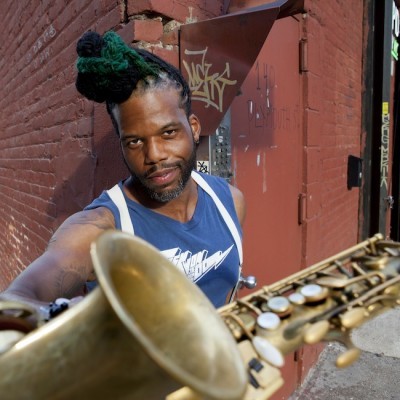
Benjamin possessed a fluid, round sound on the alto saxophone, and he was often most recognizable by the layers of electronic effects that he put onto the instrument.
Apr 2, 2024 12:59 PM
Casey Benjamin, the alto saxophonist, vocalist, keyboardist and producer who stamped his distinctive sounds on the…
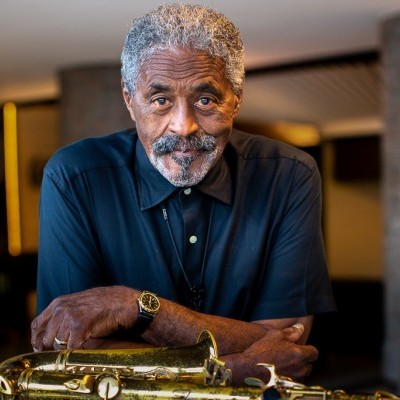
“He’s constructing intelligent musical sentences that connect seamlessly, which is the most important part of linear playing,” Charles McPherson said of alto saxophonist Sonny Red.
Feb 27, 2024 1:40 PM
“I might not have felt this way 30 to 40 years ago, but I’ve reached a point where I can hear value in what people…
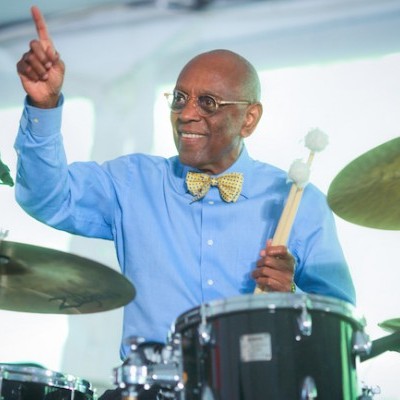
Albert “Tootie” Heath (1935–2024) followed in the tradition of drummer Kenny Clarke, his idol.
Apr 5, 2024 10:28 AM
Albert “Tootie” Heath, a drummer of impeccable taste and time who was the youngest of three jazz-legend brothers…
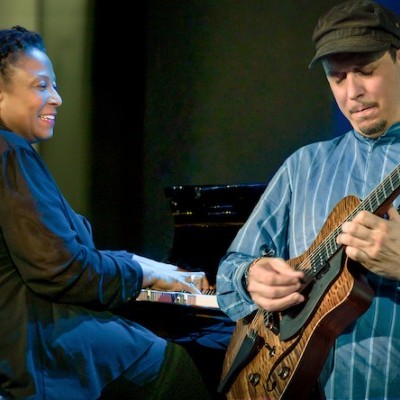
“Both of us are quite grounded in the craft, the tradition and the harmonic sense,” Rosenwinkel said of his experience playing with Allen. “Yet I felt we shared something mystical as well.”
Mar 12, 2024 11:42 AM
“There are a few musicians you hear where, as somebody once said, the molecules in the room change. Geri was one of…
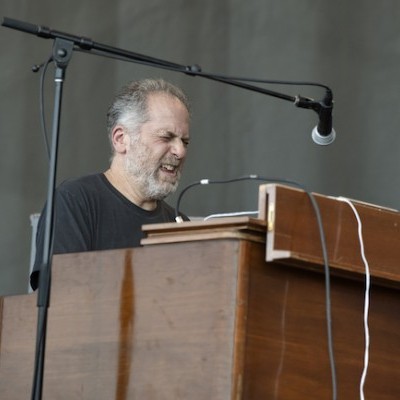
Larry Goldings’ versatility keeps him in high demand as a leader, collaborator and sideman.
Feb 21, 2024 10:45 AM
Are you having any fun? Larry Goldings certainly is. Consider just two recent examples:
Scene 1: “If anyone had…